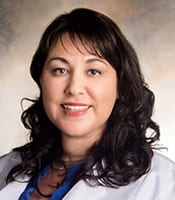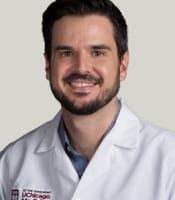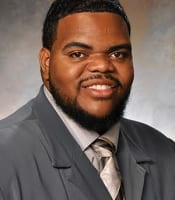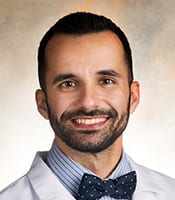
Social Emergency Medicine Track
The Social EM track provides an opportunity for residents to explore the field of Social EM through didactics, group discussions, mentorship and a scholarly project. We meet several times throughout the year, including lectures, small group discussions, outings to local community sites, movie nights, and journal clubs to discuss relevant topics. The group also focuses on career planning and providing mentorship for those interested in starting new projects, whether they are related to education, research, or improving the health of our patients. Our Social EM track members and other interested residents meet regularly to discuss journal articles covering topics in Social EM.
Current Initiatives
- ED screening for HIV and syphilis
- Women’s health/early pregnancy care/linkage to prenatal care and pregnancy options couselling/services
- Human trafficking (policy and education)
- Homelessness (improving waiting times, placement in supportive housing directly from ED)
- Buprenorphine initiation and linkage to outpatient addiction care
- Opioid overdose education and naloxone distribution
- ED Social Medicine Team (a multi-disciplinary team dedicated to addressing the social determinants of health that drive frequent returns to the ED)
- Improving care for sexual assault patients in the ED
Social EM Faculty

Kimberly Stanford, MD, MPH, FACEP
Stanford’s work focuses on ED screening for HIV and STIs, HIV prevention, and STI education. She is the Director of ED HIV/STI Screening at the Chicago Center for HIV Elimination (CCHE) and is an NIH-funded implementation scientist studying universal ED syphilis screening. She leads the ED Social Medicine Team, a multi-disciplinary team dedicated to addressing the social determinants of health leading people to return to the ED, and she has ongoing projects in the areas of human trafficking, sexual assault, and homelessness. She is the founder and co-chair of the ICEP Social EM Committee, serves on the ACEP Public Health and Injury Prevention Committee, and is the chair-elect of the ACEP Social EM Section.

Quincy Moore, MD
Dr. Moore’s focus in the department includes opioid overdose education and naloxone distribution, ED initiation of buprenorphine, and linkage to outpatient addiction care. He does staff and resident education, conducts research, and works to implement best practices in addiction treatment for our patients. He also received an innovations grant to place ED patients directly into supportive housing, partnering with a local non-profit. He is dual-boarded in addiction medicine, current Chair of ACEP’s Social EM Section, Co-Creator of the “Announce Social EM Podcast,” and a previous editor at SocialEMpact.com.

Abdullah Pratt, MD
Dr. Pratt works directly with South Side communities to advocate for their needs in the context of the University and the greater medical system. He was instrumental in the establishment of UChicago as a Level 1 Trauma Center.

Alejandro Palma, MD
Dr. Palma’s interests lie in medical education and health policy on pain management and opioid reduction. He completed a Medical Education Research, Innovation, Teaching and Scholarship fellowship at the University of Chicago. He has co-written a white paper with Vizient on best practices for establishing a pain management program. Dr. Palma through ACEP has commented on CDC pain management guidelines as well as advocated for several opioid related bills nationally. He also published a systematic review on pain management graduate medical education. Recently, he received a grant to develop a collaborative curriculum with the Orthopedics department to teach EM residents about reducing fractures to decrease use of opioids.
